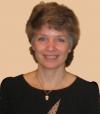Reference
- Vyhovanets A. E. Theology in the system of secular education in modern Russia. In: Istoricheskie, filosofskie, politicheskie i yuridicheskie nauki, kul'turologiya i iskusstvovedenie. Voprosy teorii i praktiki. 2017. № 12-2 (86). P. 57–60. (In Russ.)
- Gryaznova E. V. Information reality and society. Nizhny Novgorod, 2010. 202 р. (In Russ.)
- Gryaznova E. V., Zelenov L. A. Applied problems of philosophy scientific and pedagogical experience. Gzhel. 2015. 161 р. (In Russ.)
- Gryaznova E. V., Veresova E. A., Mikheeva V. V. Problems of informatization of education management. In: Sociodinamika. 2015. № 11. P. 144–157. (In Russ.)
- Evsikova A. I. Integrative educational space of a technical university – the basis for the organization of continuous professional education of specialists during the implementation of professional activity. In: Nepreryvnoe obrazovanie: problemy, resheniya, perspektivy. St. Petersburg, 2022. P. 49–52. (In Russ.)
- Siebert Yu. G. The current state of theological education in Europe. In: Teologicheskoe obrazovanie v usloviyah cifrovizacii: vyzovy, smysly, praktiki. Yekaterinburg, 2022. P. 27–36. (In Russ.)
- Karpov A. O. Educational institute, power and society in the era of the growth of the culture of knowledge. St. Petersburg, 2013. 257 p. (In Russ.)
- Kozarezova O. O. The main ways of development of theological education in higher education: history and modernity. In: Teologiya i obrazovanie. 2018. № 1. P. 413–425. (In Russ.)
- Leskin D. Y. Church-state interaction in the field of education: the experience of the Samara region. In: Teologiya i obrazovanie. 2018. № 1. P. 556–563. (In Russ.)
- Lyapunova, N. V. Evolyuciya professional'nogo cerkovnogo obrazovaniya v Rossii : avtoref. dis. … dokt. istor. nauk : 07.00.02. Moscow, 2006. 51 p. (In Russ.)
- Rozin V. M. Formation and features of social institutions: cultural-historical and methodological analysis. Moscow, 2012. 154 p. (In Russ.)
- Semikopov D. V., Lebedev I. A., Aksenov A. V. Sobornost as a metaphysical category in the religious personalism of V. S. Solovyov, Archpriest Sergiy Bulgakov and Archimandrite Sophrony (Sakharov). In: Vestnik Mininskogo universiteta. 2022. T. 10. № 1 (38). P. 11–24. (In Russ.)
- Sklyarova T. V. Orthodox education in modern Russia: structure and content. In: Vestnik Pravoslavnogo Svyato-Tihonovskogo gumanitarnogo universiteta. Ser. 4: Pedagogy. Psychology. 2016. № 1 (40). P. 9–16. (In Russ.)
- Khaidyarova N. A. Relevance of the development of continuous art education. In: Rossijskie regiony kak centry razvitiya v sovremennom sociokul'turnom prostranstve. Kursk, 2021. P. 378–380. (In Russ.)
- Khlap A. A. Technogenic ideal in digital culture: building a research model. In: Vestnik Mininskogo universiteta. 2022. T. 10. № 1(38). P. 14–26. (In Russ.)
- Shmonin D. V. Theology in the education system of modern Russia: points of growth. In: Vestnik Russkoj hristianskoj gumanitarnoj akademii. 2018. Vol. 19. № 4. P. 355–363. (In Russ.)
- Vyhovanets A. E. Theology in secular and spiritual educational institutions in modern Russia: comparative analysis / A. E. Vyhovanets [Electronic resource]. In: Pedagogika. Voprosy teorii i praktiki. 2018. № 4 (12). P. 26–29. Electron. dan. DOI 10.30853/pedagogy.2018.4.6 (date of access: 18.08.2022). (In Russ.)
- Gurtov V. A., Kolesnikov V. N., Pitukhina M. A. From the traditional model of career guidance to the system of support and counseling throughout life: the experience of Finland. [Electronic resource]. In: Nepreryvnoe obrazovanie: XXI vek [Lifelong education: the XXI century].2019. № 2 (26). Electron. dan. DOI: 10.15393/j5.art.2019.4725 (date of access: 18.08.2022). (In Russ.)
- Ermolenko R. E., Raevskaya E. A. Development program of the Institute of Pedagogy and Psychology as a tool for the implementation of continuous pedagogical education in the region. [Electronic resource]. In: Nepreryvnoe obrazovanie: XXI vek [Lifelong education: the XXI century]. 2020. № 4 (32). Electron. dan. DOI: 10.15393/j5.art.2020.6384 (date of access: 18.08.2022). (In Russ.)
- Nikulina E. N. Distance technology in theological education: methodological foundations of «classical» distance learning and opportunities for remote support of full-time courses on the example of the discipline «liturgical charter and hymnography» of the professional retraining program «theology» [Electronic resource]. In: Vestnik Pravoslavnogo Svyato-Tihonovskogo gumanitarnogo universiteta. Ser. 4: Pedagogika. Psihologiya. 2022. № 64. P. 65–75. Electron. dan. DOI: 10.15382/sturIV202264.65-75 (date of access: 18.08.2022). (In Russ.)












